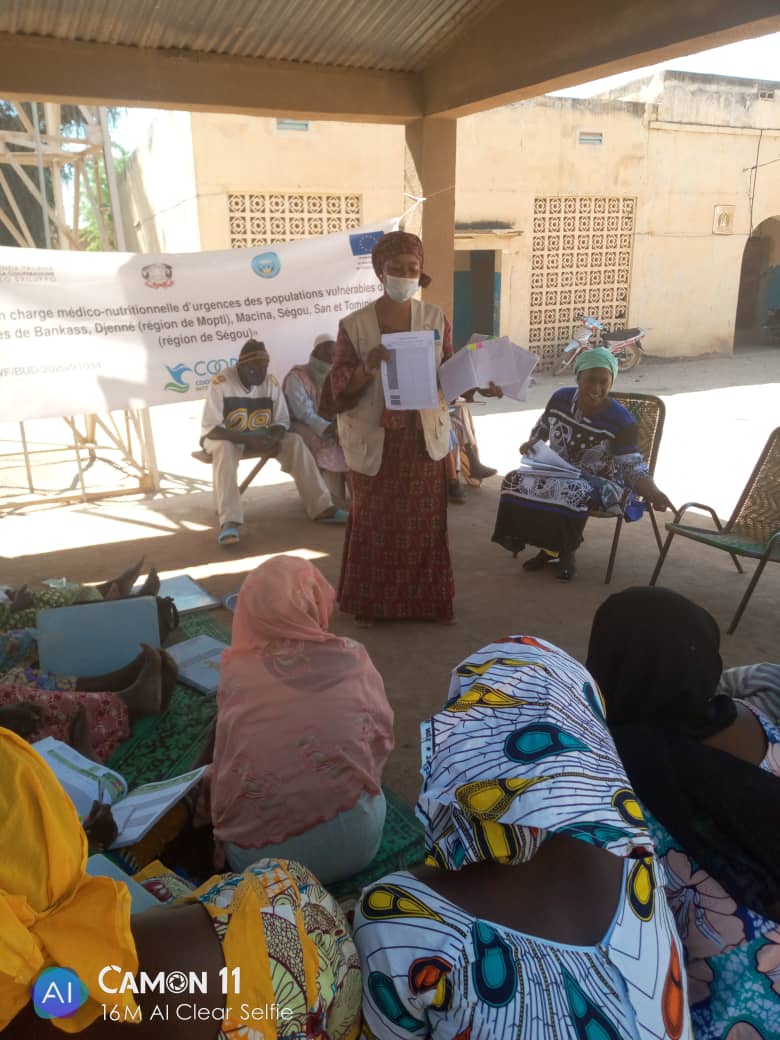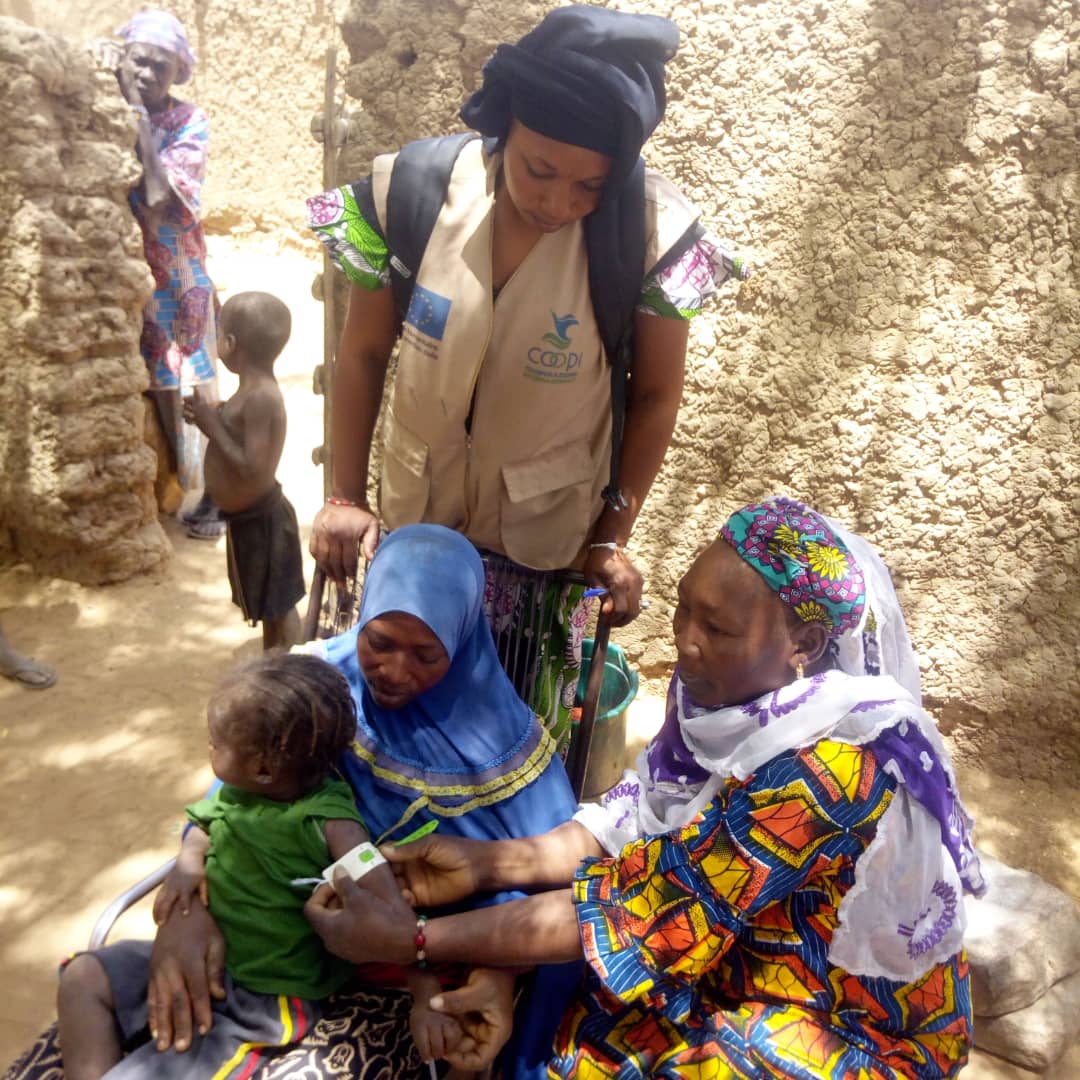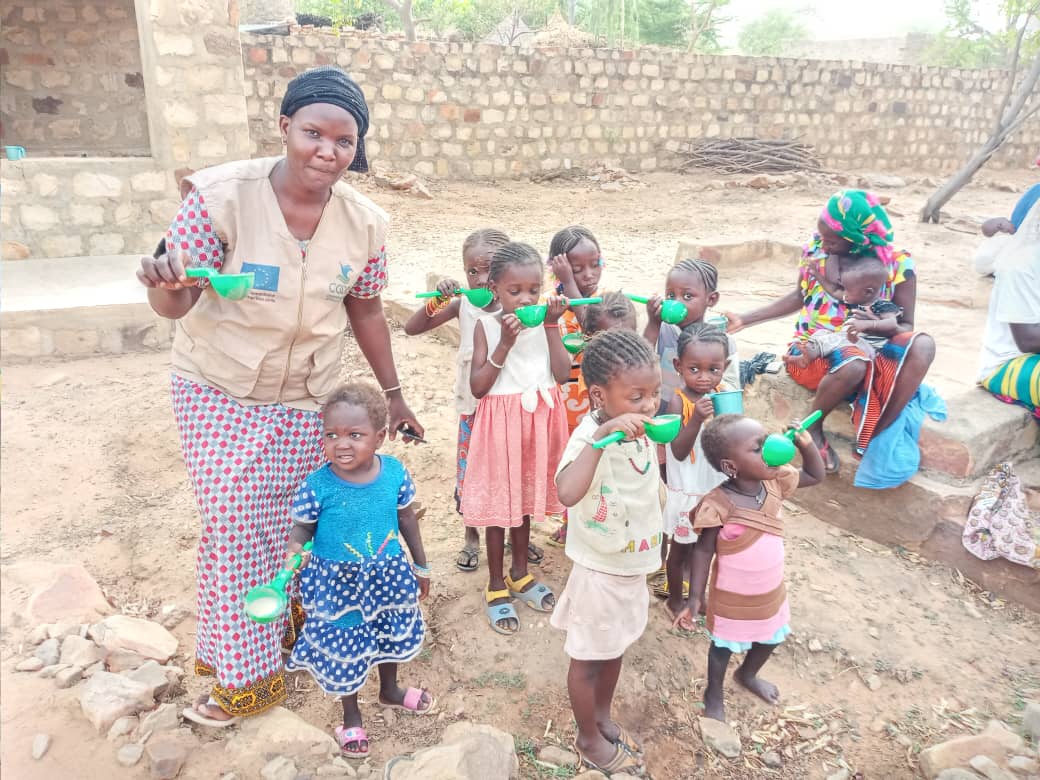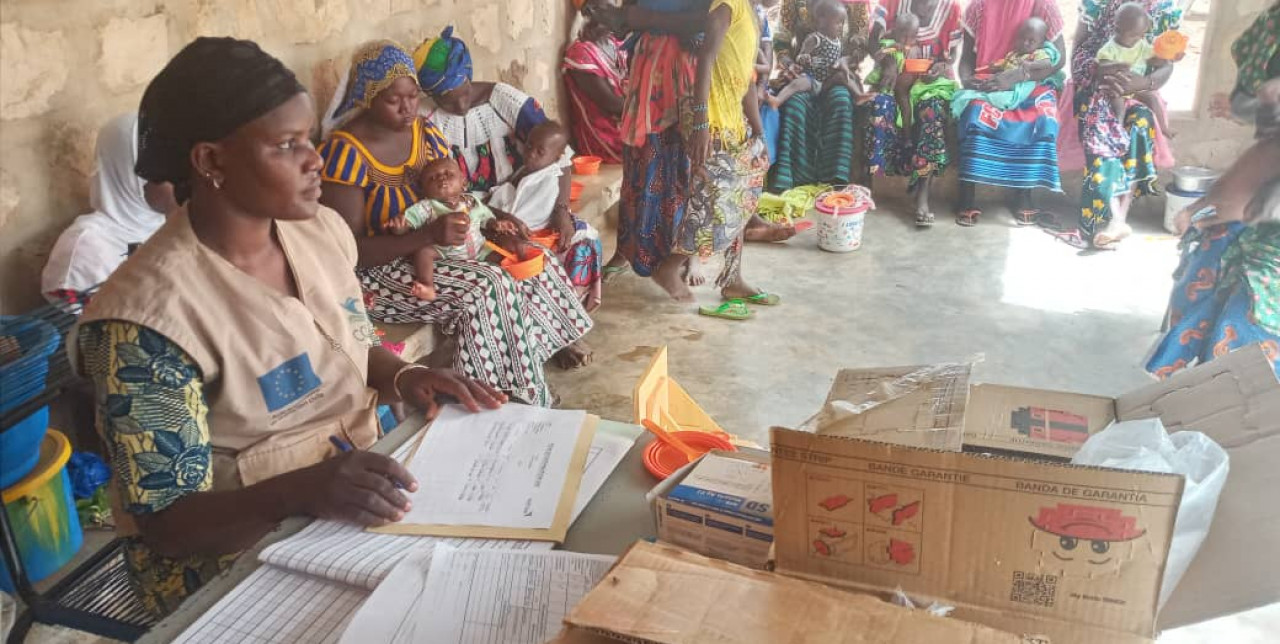21-05-2021 | di COOPI
Mali. Complementary Covid-19 response to malnutrition
After the occurrence of the pandemic, COOPI implemented a complementary COVID-19 response for emergency medical and nutritional assistance to the populations affected by the conflict and drought in northern Mali, with the support of the European Humanitarian Aid (DG ECHO), between 2020 and 2021.
The project, operating in Bankass and Djenné (Mopti region), Macina, Ségou, San and Tominian (Ségou region), had a good impact on 'PB-mére' training, acute malnutrition management and community actor training on Covid-19.

Mother-centred training ('PB-mére')
In the Bankass and Djenné health districts, there has been an improvement in screening coverage and early detection of severe acute malnutrition cases, thanks to the 'PB-mère' method.
PB-mère' is an approach to screening and diagnosis of malnutrition centred on mothers who are trained to use MUAC (Mid-Upper Arm Circumference) strips to measure the brachial perimeter of children.
COOPI therefore puts mothers at the centre of the prevention and early diagnosis of malnutrition in their children to reduce the risks of worsening and morbidity linked to malnutrition. To this end, 683 old and new community agents and 91 community health workers benefited from training of trainers to follow up the "PB-mère" approach.
A total of 57,701 women of childbearing age were trained by the community agents on the screening technique, identification of the colour of Shakir's band (green-yellow and red) and detection of oedema. Thanks to this strategy, 1,533 children were admitted to the treatment programme through "PB-mère", i.e. 19.66% of admissions from May 2020 to April 2021.

Management of acute malnutrition
Monthly door-to-door micro-screenings and the coupling of screening with the "PB-mère" strategy made it possible to send 80,539 severely malnourished children, aged between 6 and 59 months - with or without complications - for free, quality care in the Bankass and Djenné health districts.
This strategy was initiated to effectively respond to the restrictions related to COVID-19, while maintaining the care at different levels of the Community Health Agents (CHAs), Community Health Centres (CSCOMs) and Referral Health Centres (CSREFs) of the sites in these two districts.
A total of 7,797 severely malnourished children, aged between 6 and 59 months, were confirmed, admitted and treated, of whom 1,130 were in the CHAs sites. All these children benefited from psycho-cognitive stimulation during their treatment. These sessions helped to reduce the average length of stay of these children in the treatment programme from 39 to 34 days.
During their stay, the mothers or carers of these children benefited from awareness-raising sessions about newborn and child nutrion (exclusive breastfeeding, complementary feeding, feeding of pregnant and breastfeeding women, feeding of sick children...).

Training of community actors on COVID-19
In relation to the socio-cultural context and the resurgence of community conflicts in the Mopti region, particularly in the health districts of Bankass and Djenné, community actors, nutrition support groups and community health workers play an important role in raising awareness and changing people's behaviour.
A total of 1074 community actors including 91 Community Health Officers, 300 members of Nutrition Support Groups (GSAN), 683 community agents participated in the training on prevention, infection control and coronavirus disease.
It was an opportunity for COOPI and its public service partners to strengthen community awareness of the need and urgency to prevent the spread of the disease in the districts of Bankass and Djénné. Participants also learned how to triage and refer suspected cases to the appropriate services.




 Mali
Mali